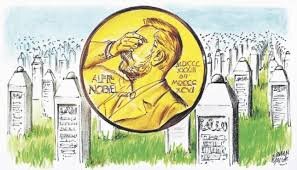Hawzah News Agency - I was at the ground zero of genocide denial in July 1995. In the days following the fall of Srebrenica, the commanders of Dutch troops still based in the enclave were coerced into signing a document with a strangely convoluted and somewhat innocuous title: "Declaration of the Representatives of Civilian Authorities in the enclave of Srebrenica on the realization of the agreement on the evacuation of the civilian population of the enclave." By July 17, 1995, when the statement was actually signed, there was not any legitimate civilian authority left in Srebrenica. For the purposes of the task at hand, therefore, the Bosnian-Serbs were obliged to create one.
This "authority" – a man who happened to be my high school teacher – was selected at random from among the tens of thousands of refugees in Potočari and forced to sign the document acutely aware that short of signing it, he would not survive.
The key passage of the document read: "During the evacuation, there were no incidents on either of the sides and the Serb side has adhered to all the regulations of Geneva Conventions and international war law... ," with an addition, in handwriting, added by a Dutch officer: "as far as convoys actually escorted by the U.N. forces are concerned." The poor quality of the document's English can be explained easily: I translated it, while the top brass of the so-called Bosnian Serb Army waited in the other room.
It was a blatant and arrogant attempt to cauterize the genocidal nature of the events taking place between July 11 and 16. The day before the document was signed, the last in the series of mass executions in the first week following the fall of Srebrenica took place in Kozluk, some 40 kilometers away.

